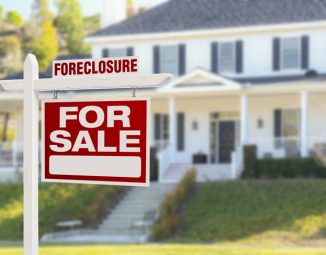JUDICIAL FORECLOSURE SALES ARE IMMUNE TO PREFERENCE CHALLENGES
The Bankruptcy Court for the Western District of Pennsylvania has recently held that a pre-petition foreclosure of a debtor’s real property, conducted in accordance with state law, is not subject to attack as a preference under 11 U.S.C. § 547.[1]
There, the holder of the first mortgage on the property commenced foreclosure proceedings against the debtor. At the sheriff’s sale, the holder of the junior second mortgage was the successful bidder, purchasing the home at a price equal to the first mortgage. Shortly thereafter, the debtor filed a Chapter 11 bankruptcy petition and filed an adversary proceeding to avoid the purchase of the home as a preferential transfer. The debtor raised no argument regarding any abnormality, illegality or other issue with the foreclosure proceedings or sheriff’s sale and, in fact, conceded that the foreclosure proceeding was lawfully conducted and in full compliance with Pennsylvania law.
In the adversary proceeding, the debtor sought to avoid the foreclosure sale as a preference in the amount of $85,000, arguing that the transfer enabled the junior mortgagee to secure more than it would have received in a hypothetical Chapter 7 proceeding. The foreclosed house was worth $200,000 and the first mortgage totaled $90,000. The junior mortgage holder, which was owed only $25,000, made the highest bid purchasing the house at foreclosure sale for the amount of the first mortgage. As a result of the foreclosure sale, the holder of the second mortgage substantially increased its equity cushion in the property.
To avoid a preferential transfer under 11 U.S.C. § 547, a plaintiff must demonstrate that a transfer of the debtor’s interest in property was made
- to or for the benefit of a creditor;
- on account of an antecedent debt;
- while the debtor was insolvent;
- within 90 days before the filing of the petition, or between 90 days and one year before the petition if the creditor was an insider; and
- that enables the creditor to receive more than it would receive if the case were under Chapter 7 and the transfer had not been made.
The debtor argued that that the transaction amounted to a preference because the holder of the second mortgage received more as a result of the foreclosure sale than it would have in a hypothetical liquidation of the debtor’s estate based on the asserted value of the home. The Bankruptcy Court concluded that there was no binding authority on the issue and that other courts were split on the question.
A little more than 20 years ago the United States Supreme Court, in the case of BFP v. Resolution Trust Corp., ruled that a properly-conducted foreclosure sale constitutes reasonably equivalent value, even if the forced nature of the sale results in a price that falls below fair market value. A constructively fraudulent transfer is made for less than reasonably equivalent value while the debtor was insolvent. Thus, it has long been settled that a foreclosure sale conducted in accordance with state law cannot be avoidable as a constructively fraudulent transfer.
In rejecting the debtor’s argument that the foreclosure sale amounted to an avoidable preference, the Bankruptcy Court for the Western District of Pennsylvania looked to the reasoning behind the Supreme Court’s decision in BFP as well as those cases that have applied the rationale to deny actions for preference avoidance following foreclosure sales. The Bankruptcy Court ruled that a transaction where a lien creditor purchases property at a regularly conducted sheriff’s sale and later sells it for an amount greater than the amount of its lien cannot constitute a preference because, as a matter of law, it did not “receive more” than it would have in a Chapter 7 liquidation. The Bankruptcy Court, like the Supreme Court in BFP, was particularly concerned about issues of federalism. A ruling permitting preference challenges to foreclosure sales would profoundly affect Pennsylvania’s interest in making title to real property stable and secure. Had Congress intended to disrupt the stability of land titles – a matter of significant importance to and traditionally regulated by the states – such a result would have to be manifest from the plain language of the statute. As the preference statute of 11 U.S.C. § 547 does not evidence any such intent, the Bankruptcy Court declined to expose real property purchased at foreclosure sales to a federally-created cloud for the two-year period following the foreclosure sale.
Sheriff’s sales conducted in compliance with applicable state law are final and the rights created and extinguished by them cannot be disturbed by a subsequent bankruptcy. Accordingly, a proper foreclosure sale cannot be avoided as a preferential transfer under 11 U.S.C. § 547.
[1] Veltre v. Fifth Third Bank, Memorandum Opinion, Bankr.W.D. Pa., (Adv. No. 2213-CMB)





